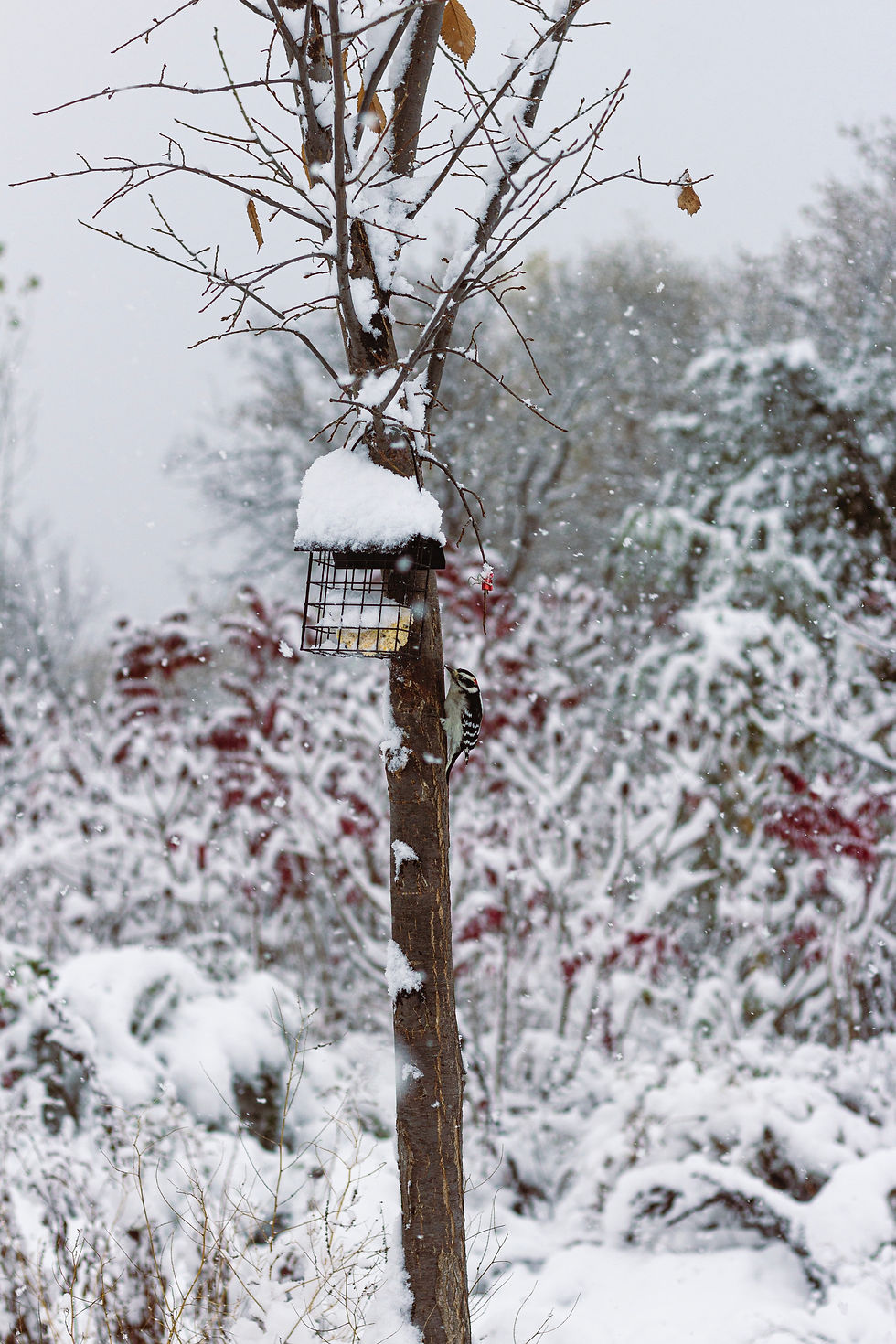How to Create a Wildlife Winter Wonderland
- Severn Wildlife Rescue

- Nov 17, 2020
- 3 min read
written by Jess Cartwright

It's getting colder outside, it's officially soup season and we're all wearing a couple of extra layers plus a coat we haven't worn since the beginning of Spring. We feel it, and animals feel it too. It can be gruelling in the winter months for animals having to battle the elements, and it’s important we help out where we can!
Only three mammals in the UK truly hibernate: hedgehogs, dormice and all bat species. They all need somewhere to create cosy nests for the winter. Amphibians will retreat to the bottom of ponds to hibernate and reptiles go into brumation, which is a type of hibernation, sometimes burying themselves completely underground to do this. Insects are also able to go into a process called diapause, which is where they enter a dormant state where their appetite and development is almost non-existent until the air starts to get warmer and more resources are available.
And, of course, there are many animals that don’t hibernate in winter, including birds, other mammals such as badgers and otters and not all insects retreat when it’s cold. Whether an animal is hunkering down or not, there are a number of small things you can do in your own garden that’ll make a massive difference to the smaller inhabitants.

Build a Box for Shelter
If you can, building a shelter for hedgehogs and small animals in your garden is an excellent way to provide a little bit of extra protection, and makes the perfect place for a nest if needed. Shelters near the ground are perfect for hedgehogs but you can also place boxes on trees which can make a lovely home for dormice or bats.
Although it can be tempting to have a little peek inside, doing this can have a negative effect on their hibernation.
Rewild your garden
Why not let your garden grow a little bit wild over winter? It’s unlikely you’ll use your garden very much in the winter months, and by letting it grow a little unruly you are giving animals more space and protection from the elements and predators. If you like raking leaves off your driveway or garden, you can turn these into big piles that are very tempting for smaller mammals and insects as it provides shelter and a possible nest. Just remember not to move the leaves, or do any major gardening, until after winter, otherwise you'll have some very exposed, unhappy and quite vulnerable animals.
Make some room to breathe
If you have a pond, give it a clear out before the really cold weather hits. Remove any leaves that have fallen into the pond, which can release toxic gases into the water and affect the animals below. This becomes worse if the pond becomes frozen. Although animals should be able to survive a frozen pond for a couple of days, provided the pond was in a healthy state when this happened, you can help by making a small hole in the ice to ensure enough oxygen is getting in. Don’t smash the ice, as this can shock the animals. Rather, make a small hole by carefully using the end of a hot spoon handle.

Leave out food and water
If you do have bird feeders or bird baths, leave out fresh food and water for any visitors you might have. But remember to keep these clean as it can be very deadly to birds if not tended to regularly.
You can also leave small bits of food for mammals. This can provide a boost when food becomes harder to get. Squirrels enjoy nuts and small pieces of apples or carrots, which will help to build up their food stores. Badgers will struggle to dig into frozen ground to find earthworms so a selection of cheese and fruit can help out a lot. Foxes also like cheese as well as chicken, boiled potatoes, bread and other scraps.
If you are leaving food out, make sure it is clean and fit to eat so animals don’t get ill and only leave small amounts so animals don’t become dependent on your handouts. Be aware of your surroundings and leave the food in a safe space; if you live on a really busy road, it might not be the best idea to tempt animals to cross it.
Make an insect hotel
Make an insect hotel for all the little critters to stay over winter. You can use a combination of bricks, sticks, twigs, wood, logs, rocks and stones - anything you can find! Make little nooks and crannies that insects can crawl into, and they’ll be a happy holidaymaker until spring.
Utilising even just one of these tips can help animals thrive in winter. If you do happen to come across an injured animal over the cold season, please contact your local wildlife rescue who will advise what you need to do!




Comments